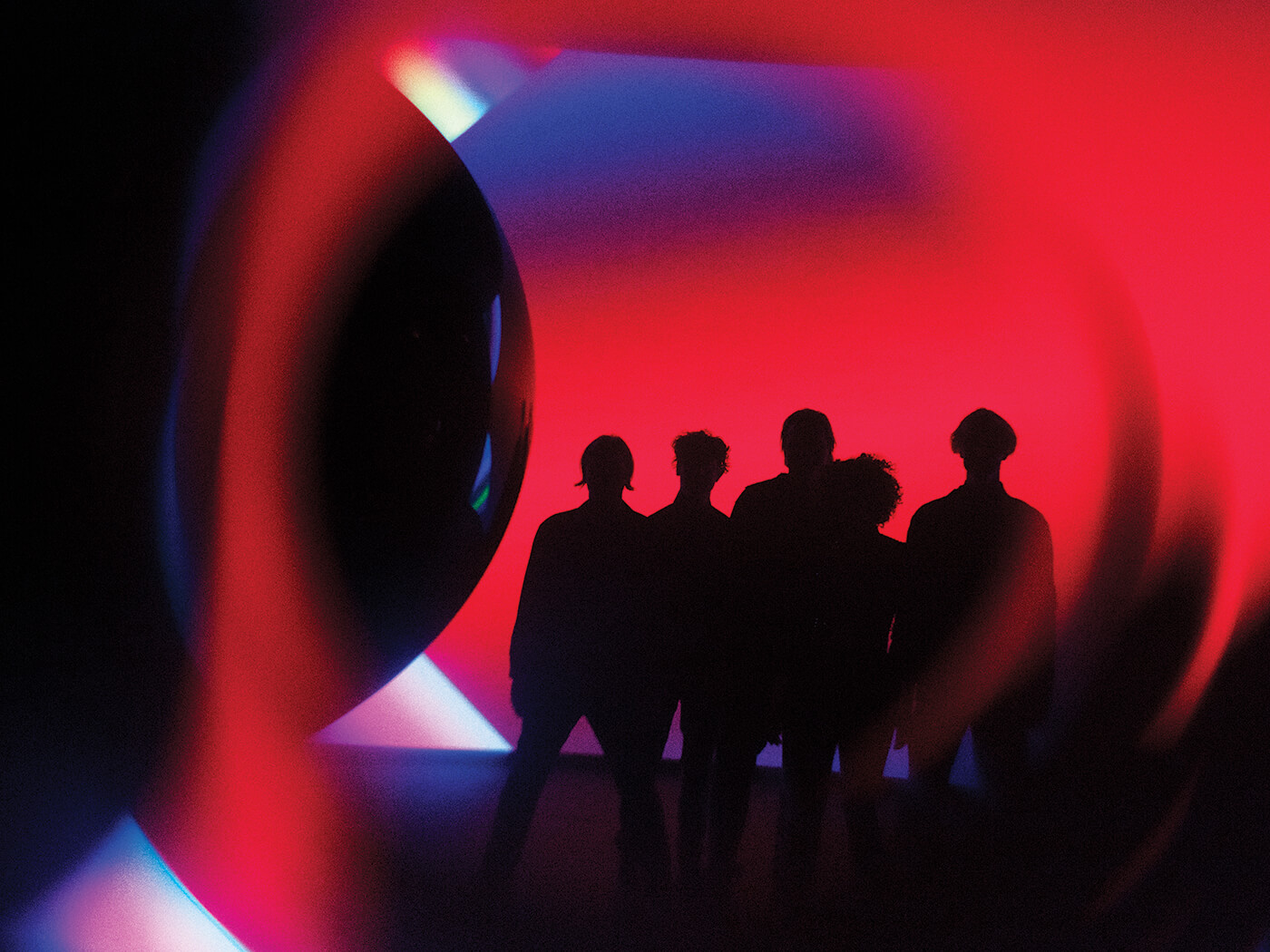Anyone harbouring the ambition to create a work that encapsulates the chaos and confusion of these times faces a fundamental obstacle: there’s rather a lot to cover. That’s certainly one of the reasons that We – Arcade Fire’s sixth album and first since 2017’s Everything Now – required the most protracted birth process in their two-decade career. In a BBC interview in 2020, frontman Win Butler claimed to have written “records and records” of material while locked down at home. Nor did this torrent stop when they were able to re-enter the world and work on the album in studios in New Orleans, El Paso and Mount Desert Island, Maine, through 2020 and 2021.
Somehow, the band and producer Nigel Godrich honed down this mountain of material to seven songs and 40 minutes. The one song they debuted in the first year of the pandemic – “Generation A”, which they performed on the night of the US presidential election on Late Night With Stephen Colbert – was among those that didn’t make the cut. A 45-minute ambient track released via the meditation app Headspace suggests another of the creative paths not represented here.
It was a journey that wore out at least one Arcade Fire member: Will Butler announced his departure following the album’s completion earlier this year. Yet from We’s opening moments, it’s clear they’ve arrived somewhere remarkable. Not since The Suburbs in
2010 have they made a work that is so fully engaged and engaging.
Nor has the band ever reached their typically high ambitions with such confidence or aplomb. Introducing the theme of isolation that’s central to the album’s first half – subtitled “I” in contrast with “We”, its more collective-minded second part – “Age Of Anxiety I” and “Age Of Anxiety II (Rabbit Hole)” were inspired by “I Am Waiting”, a poem by Lawrence Ferlinghetti that’s long been one of Win Butler’s favourites. Even if the original was published in 1958, the feelings of despair and disorientation it contains seem equally applicable to our gruelling zeitgeist. Yet along with the “age of anxiety” Ferlinghetti describes, there’s another phrase that Butler does not repurpose but still goes straight to the heart of We’s tumultuous welter of emotions and ideas. That’s the poet’s call for “a rebirth of wonder”, words that Butler seems to have very much in mind as he describes his own drive to emerge from the darkness and be born anew.
While any expression of optimism risks sounding hopelessly naive amid our cascade of global crises, Arcade Fire have never been embarrassed about trying to shine that light. What makes it seem all the brighter on We is the sense of the band’s own revitalisation and re-embrace of the strengths that made them special. First fostered during their early years in Montreal, Arcade Fire’s checklist of quintessential qualities includes the match of widescreen sweep and breakneck velocity that manifests so vividly in “The Lightning I, II”, the marriage of the epic and the intimate in “End Of The Empire I–IV”, the penchant for campfire-ready singalongs in “Unconditional I (Lookout Kid)”, and the interplay between Butler and partner Régine Chassagne on “Age Of Anxiety II (Rabbit Hole)”.
That’s not to suggest We qualifies as a leap back in time to the epiphanic indie-rock of Funeral or the Springsteen-ian fervour of The Suburbs. Instead, the album retains many of the electronic trappings adopted for 2013’s Reflektor as well as the densely layered aesthetic of Everything Now. But there’s also a shift away from those albums’ cynicism. As the songs demonstrate again and again, the surest place to find that potential for rebirth is in the bonds we form with each other. Butler expresses that idea in its starkest terms in the climactic moments of “The Lightning I, II”. “If you don’t quit on me, I won’t quit on you”, he sings, simple lines that help make the song as stirring and thrilling as any they’ve made.
Despite its philosophical bent and two-part structure – not to mention the high preponderance of songs with Roman numerals – We is spared the concept-album bloat that marred Everything Now thanks to its focus and concision. Even the album’s nine-minute, four-part centerpiece “End Of The Empire I–IV” feels as tight as it can be. In the band’s grandest acknowledgement of their debts to their late admirer David Bowie, Butler’s lamentations are initially cloaked in a Low-worthy cloud of gloom before it all builds into a choir-enhanced finale that evokes both “Five Years” and “Heroes” in its apocalyptic glory. Again leavening what might have been grim with energy and wit, Butler transforms the humble phrase “I unsubscribe” into a rallying cry of opposition in the face of the algorithms that oppress us.
And for all the heaviness that inspired We, the album is fuelled more by a spirit of joy, another hallmark of the band’s early days that faded as the years wore on. It’s here again in the celebrations of love and commitment in “Unconditional I (Lookout Kid)” and “Unconditional II (Race And Religion)”, a Chassagne-sung highlight given another burst of gusto by guest vocalist Peter Gabriel.
Though this resurgence of positivity will hopefully not be hampered by the loss of Will Butler, Arcade Fire’s most reliable wild card, he leaves the band sounding healthier. Like Spoon with Lucifer On The Sofa and Animal Collective with Time Skiffs, Arcade Fire have delivered a triumphant restatement of purpose that 2022 probably doesn’t deserve but is brightened by all the same. So best enjoy this age of wonder while it lasts.

